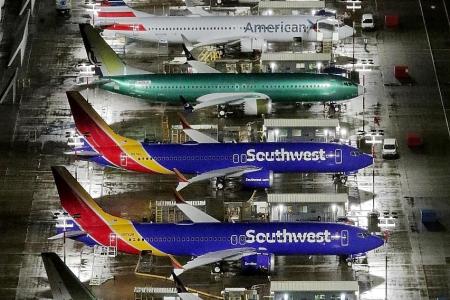Malaysia warns new EU rules may hurt palm oil trade
KUALA LUMPUR: Malaysia, the world's No. 2 palm oil producer, warned yesterday of new rules from the European Union that could hurt demand for the commodity used in foods from snacks to chocolate spread, threatening a US$60 billion (S$81.7 billion) industry.
Palm oil is a versatile edible oil used in everything from lipstick to biofuels but its role as a cheaper cooking medium ensures that food accounts for nearly 70 per cent of global consumption of an edible oil whose cultivation is blamed for stripping tropical rainforest.
The EU is looking at new limits on food contaminants in refined fats and oils, including palm oil, said Ms Teresa Kok, the Malaysian minister in charge of the palm oil portfolio.
"Our industry must be ready to anticipate any challenges to these trade impediments and most importantly address the issues, especially on food safety," Ms Kok said.
The EU has imposed a limit for glycidyl esters and will soon impose a limit for 3-MCPD esters "that may have an impact on palm oil consumption in food products", Ms Kok said, referring to the contaminants.
The European Food Safety Authority said earlier that the two contaminants raise potential health concerns.
A European Commission working group has also discussed setting maximum levels for 3-MCPD esters in food ingredients. Environmentalists have attacked palm oil over the vast areas of forest they say have been cleared to grow the commodity.
The minister also reiterated that Indonesia and Malaysia - the top two producers of palm oil - would challenge at the World Trade Organisation another law from the bloc limiting palm oil usage in biofuels. - REUTERS
European regulators expect Boeing's 737 Max to return to skies in Jan
COLOGNE, GERMANY: European regulators expect to clear Boeing's grounded 737 Max to return to service in January at the earliest, following flight trials by European test pilots scheduled for mid-December.
The head of the European Union Aviation Safety Agency (EASA) declined to estimate when US regulators would make their own decision to lift a flight ban imposed in March, but said any gap between the agencies would be a matter of weeks rather than months.
Boeing has said it aims to return the jet to service by the end of the year, following changes to cockpit software and training in the wake of two fatal crashes.
The US Federal Aviation Administration (FAA) has primary responsibility for lifting the ban and is expected to be followed by other regulators including EASA, but there have been reported concerns that other agencies could be slow to act.
EASA executive director Patrick Ky said late last week: "For me it is going to be the beginning of next year, if everything goes well.
"As far as we know today, we have planned for our flight tests to take place in mid-December which means decisions on a return to service for January, on our side."
The FAA is waiting for a final Boeing system update designed to avoid so-called MCAS control software pushing the Max's nose downwards due to data from a single faulty angle-of-attackor airflow sensor. Instead, MCAS will monitor both sensors.
Mr Ky said: "We are still looking at the changes made by Boeing on their flight control computers which they did over the summer and early September.
"We are entering a critical stage in the project where we look at the human-factor issues and how much in terms of workload a crew can take in terms of alarms." - REUTERS
Get The New Paper on your phone with the free TNP app. Download from the Apple App Store or Google Play Store now




